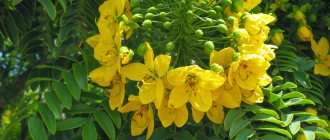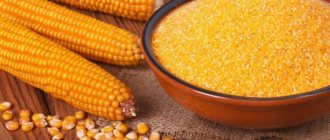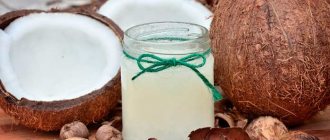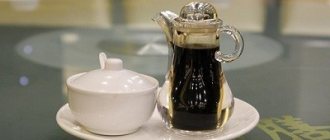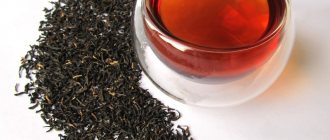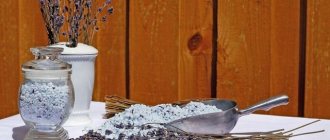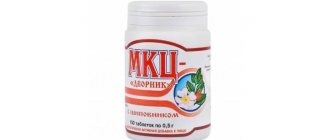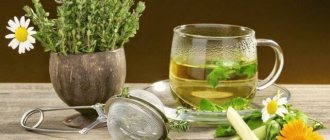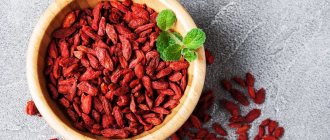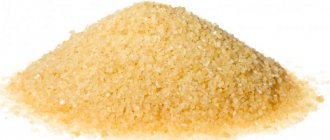Senna is a plant from the legume family, widely used in medicine. It has several names: cassia holly, African senna, Alexandrian leaf. The plant is a tropical shrub. The medicinal raw materials are the leaves and fruits of senna. It is grown and harvested on an industrial scale in Asia and Africa. It also grows in Russia - the climate of the Krasnodar Territory suits it.
The main and most pronounced pharmacological property of senna herb is a laxative.
Composition and medicinal properties of the herb
The plant contains:
- glycosides;
- flavonoids;
- organic acids;
- vegetable resins;
- plant alkaloids;
- anthraquinones (they are the ones that have a laxative effect).
Biologically active substances provide the following pharmacological effects:
- pronounced laxative;
- moderate diuretic;
- secretory;
- appetite stimulant;
- anti-inflammatory.
Indications for use of senna herb
Senna herb and preparations prepared from it are used in the following cases:
Retention of stool, constipation
Plant glycosides normalize the peristalsis of the intestinal wall, resulting in its emptying naturally. This medicine helps with constipation of atonic and hypotonic origin.
From the mechanism of action it follows that the use of senna for constipation of spastic origin should be used with caution or completely avoided
Diseases whose specific nature requires softening of stool
This effect is required for exacerbation of hemorrhoids, as well as for rectal fissures. This action is also relevant in the postoperative period after surgical interventions in the pelvic floor area.
We recommend reading: Medicinal properties and contraindications of galangal root, use for men, galangal tincture
Diseases of the liver and biliary tract
For diseases of the hepatobiliary system, senna’s ability to cleanse the body of waste and toxins and normalize the functioning of hepatocytes and the gallbladder is used. It must be taken into account that senna extract brings benefits for the liver and digestion in low quantities - in contrast to large doses, which have a laxative effect
Weight loss
The instructions for use for senna herb, as well as for preparations containing this medicinal raw material, do not contain information about whether this drug is intended for weight loss and weight loss. However, this result is achieved thanks to the pronounced laxative effect of the drug, cleansing the intestines and the subsequent cleansing of the body. The ability of senna extracts to normalize appetite and accelerate metabolic processes also indirectly contributes to weight loss.
For weight loss, senna grass is used together with dandelion, mint, nettle, parsley, and dill as part of herbal preparations. Mixtures of Alexandria leaf with dried fruits and honey are also used. It must be taken into account that prolonged use of products prepared from this medicinal plant material can lead to addiction. Before using the herb of Alexandria leaf, consultation with a therapist and nutritionist is necessary.
Use during pregnancy for bowel movements on the eve of childbirth
Information contained in different sources varies. Some mention that with frequent constipation in pregnant women, preparations based on senna relieve the condition. Others focus on the fact that, by causing increased intestinal motility, senna can provoke contraction of the uterine muscles, which will lead to premature birth.
In addition, the excessive loss of fluid that occurs when using senna is harmful during pregnancy. Therefore, the prescription of this herbal remedy to expectant mothers should be carried out on an individual basis after a detailed consideration of all the pros and cons of such treatment
Skin and hair care
Biologically active substances contained in the Alexandria leaf have the property of softening the skin and hair, as well as protecting them from exposure to direct sunlight.
There is information that in countries where the Alexandrine leaf grows, the medicinal properties of its extract are used as an anti-inflammatory agent for purulent skin lesions, as well as for infectious and inflammatory eye diseases of a bacterial nature. Sources on Arabian medicine say that senna herb is widely used to purify the blood, for diseases of the heart and joints.
We recommend reading: The benefits and harms of pine cones, properties and when is the best time to collect them
Doctors' opinions
Doctors say that senna grass is incredibly effective in the fight against extra pounds.
It helps in eliminating fat, normalizes digestion, removes harmful substances from the body and excess fluid. The herb cleanses the intestines and improves its functioning. After a diet, a person feels light and energetic. Weakness, lethargy and low performance disappear. It’s really possible to get rid of extra pounds with the help of this herb. In a week of diet you can lose from 2 to 4 kilograms. There have been cases when people managed to lose 5 kilograms. This is a truly effective remedy in the fight against extra pounds.
How many carbohydrates do you need per day when losing weight? How to correctly calculate the norm?
Find out from this article whether there are herbs that burn fat. Their varieties and use for weight loss.
Uses of senna herb
Senna leaves are used not only as a folk “homemade” fast-acting laxative, but are also included in medications.
Release form
Alexandria leaf is found on sale in pharmacies in various forms:
Vegetable crushed raw materials
The crushed plant mass is presented for sale packaged in bags from 25 to 300 grams, equipped with a description and instructions for use.
Senna extract tablets
This medicinal raw material is included in a number of drugs intended for the treatment of constipation:
- Regulax;
- Senadexin;
- Senade
Use of dry senna herb
Senna herb is used in the following ways:
Brewing
1 tbsp. l. crushed plant material, pour 200 ml of boiling water. Take 100-200 ml at night
Decoction
1 tbsp. l. pour dry medicinal raw materials with a glass of boiling water. Simmer in a water bath for 30 minutes, then remove from heat and set aside until completely cool. Strain the resulting broth and take half a glass at night.
Infusion
2 tbsp. l. dry crushed leaves pour 200 ml of boiling water. Leave for 6 hours. Take 1 tbsp one at a time. l. no more than 3 times a day before meals
Tea
1 tsp. pour a glass of cold water over the herbs, leave for 24 hours, then strain. There are indications that this method of preparing tea from Alexandria leaf allows you to avoid side effects in the form of spasms and cutting pain after use. You should take a glass of senna leaf tea at night.
The instructions for use indicate that senna preparations can be used not only by adults, but also by children over 6 years of age.
How to collect and prepare senna grass
Basically, leaves of the crop are taken for treatment. You can start collecting them only after they have fully developed. Then they are torn from the stem and left to dry in a well-ventilated area. The collection time begins in August. Over the course of an entire season, it is sometimes possible to collect grass three times.
The fruits are also collected after final ripening and dried in a dry place.
Collected and prepared raw materials can be stored for no more than 2 years.
Herbal medicines are becoming increasingly popular among people. The effectiveness of senna herb has long been known and is beyond doubt. Of course, like any other medicine, senna must be used with caution. Only in this case will a positive effect be achieved.
0 0 votes
Article rating
Senna herb contraindications
Absolute contraindications to the use of senna leaves, as well as any medicines containing an extract of this plant, are:
- intestinal obstruction, regardless of its origin;
- ulcerative spastic colitis, especially in the acute phase;
- pain and cramps in the abdomen of unknown origin;
- suspicion of appendicitis;
- suspicion of peritonitis;
- any acute inflammation of the intestines;
- cystitis;
- bleeding from a source in the gastrointestinal tract;
- uterine bleeding of any origin;
- hernia;
- perforated ulcer of the stomach and duodenum.
The herbal remedy should not be used if you are hypersensitive to any of the biologically active substances in the composition.
We recommend reading: Description of sleep herb, where it grows, uses and contraindications
What is senna
photo of a flowering plant
Description
The shrub grows up to a meter, has an erect and branched stem with complex, alternate, ovoid leaves. The flowers are bright yellow in color and form racemose inflorescences. The root is slightly branched, taproot, going deep into the soil.
Habitat and harvesting of senna
The shrub is found in Africa, Asia, India, Somalia, Sudan, and the Arabian Peninsula. For the pharmaceutical industry, senna is cultivated in Azerbaijan, Turkmenistan, Uzbekistan, Ukraine and the Krasnodar Territory.
For medical purposes, the leaves of the plant are collected and dried naturally in air. Properly prepared cassia has a pale green color, a rich herbal aroma, and a sweetish taste when brewed.
Chemical composition and pharmacological action of senna herb
The main active ingredients are anthraglycoside and anthraquinone - substances that irritate the gastrointestinal tract receptors and improve its peristalsis. The plant also includes:
- Flavonoids;
- Polysaccharides;
- Alkaloids;
- Glycosides;
- Resins;
- Myricyl alcohol.
Meccan senna is one of the medicinal plant species
The herb has medicinal properties:
- Laxatives;
- Secretory;
- Diuretics;
- Anti-inflammatory;
- Stimulating appetite.
Medicinal properties of senna and contraindications
Senna is a herb for constipation, it has a laxative and cleansing effect, improves the functioning of the gastrointestinal tract, increases intestinal motility and reduces secretion. It is used as a choleretic agent, which has a beneficial effect on the digestion and absorption of food.
The medicinal properties and contraindications of senna herb are due to its chemical composition, which has beneficial effects on the human body:
- Helps strengthen and rejuvenate the body, relieves chronic fatigue, improves appearance, removes skin rashes;
- Activates metabolic processes and fat breakdown;
- Improves heart muscle function;
- Has anti-inflammatory, analgesic and diuretic effects;
- Dissolves salt deposits in joints;
- Strengthens bone and muscle structure;
- Cleanses the blood;
- Normalizes the menstrual cycle;
- Used to soften skin and hair;
- Relieves redness and inflammation of the eyes;
- Fights skin pathologies - psoriasis, candidiasis, dermatitis, lichen.
It is not recommended to take medications with senna for:
- Acute intestinal pathologies;
- Inflammation of the gastrointestinal tract;
- Tendency to diarrhea;
- Cystitis;
- Bleeding – uterine and gastrointestinal tract;
- Children under 6 years of age:
Senna during pregnancy can lead to intestinal spasms, cause uterine contractions and provoke early labor or miscarriage.
This is interesting: Fluorosis in children and adults: treatment, photos, forms, diagnosis
What are the side effects of senna herb?
Undesirable side effects, especially in case of overdose, are possible:
- spasms of smooth muscles of internal organs;
- cutting pain in the abdominal cavity;
- indigestion;
- dyspeptic symptoms in the form of nausea and vomiting;
- bloating, increased gas formation;
- dizziness;
- heart rhythm disturbance;
- muscle cramps;
- confusion;
- brown tint of urine;
- electrolyte disturbances due to potassium loss;
- damage to the intermuscular plexus of the inner wall of the intestine;
- dark brown coloration of the walls of the large intestine.
If used incorrectly, Alexandria leaf can cause harm to the body. Long-term use leads to addiction. This condition is manifested by increased constipation due to dysfunction of peristalsis, narrowing of the lumen of the large intestine, which occurs due to constant stimulation of tone.
To avoid such situations, it is recommended to regularly change the type of laxatives if there is a need for prolonged use.
Instructions for use of senna
Most often, senna is used as a laxative and cleanser. Due to its medicinal properties, the plant helps improve the condition of certain diseases.
Main indications for use:
- atonic constipation in chronic form;
- liver failure, pancreatic diseases;
- helminthic infestations;
- dysbacteriosis;
- anal fissures;
- atony of the large intestine;
- exacerbation of chronic spastic colitis;
- accumulation of large amounts of toxic waste in the body;
- overweight;
- haemorrhoids.
Cassia-based drugs are prescribed before operations on the organs of the digestive system, or after surgery with the development of atonic symptoms.
Senna helps you get rid of extra pounds
How to take senna for constipation
Preparations based on cassia can quickly normalize stool; the laxative effect occurs after 6.5–10 hours, so it is better to take them immediately before going to bed. After 2–3 days of therapy, bowel movements occur regularly, and medication can be stopped.
Ways to use cassia for constipation:
- Infusion - 1 tbsp required. l. of crushed raw materials, brew 250 ml of boiling water, leave in a closed container for 3.5 hours. Filter, drink 2-3 sips before bed. This solution can be used externally for cosmetic purposes to eliminate skin rashes.
- To treat constipation in a child and cleanse the intestines, you can prepare an infusion of 1 tsp. senna and 220 ml of cold water, infuse the medicine for 24 hours, stirring once every 3-4 hours. Consume after straining before going to bed. This method of preparation helps prevent the occurrence of pain.
- In tablets and cubes, senna should be taken once a day before bedtime, washed down with water. Dosage for adults – 1 pill, for children under 12 years old – half the adult dosage. In the absence of a therapeutic effect, the required amount should be selected experimentally, increasing the dosage by 0.5 tablets every 3 days, but not more than 2-3 pills per day.
- To prevent constipation, you can drink cassia tea 1-2 times a week - add 3 g of herb to the teapot, and mix it with black or green tea leaves.
Senna decoction is an effective remedy for constipation.
Important!
If there is no bowel movement within 3 days of treatment with cassia, you should immediately consult a doctor. The maximum duration of therapy is 2 weeks.
Senna herb for weight loss
During weight loss, senna is taken in several forms.
Mixture of dried fruits with hay
Composition of the fat burning mixture:
- dried figs;
- raisin;
- pitted prunes;
- dried apricots;
- honey;
- cassia.
A mixture of dried fruits and senna for quick weight loss
Each component will require 120 g. Grind the herb, brew 500 ml of boiling water, strain after 50–60 minutes. Grind dried fruits in a blender, add honey and senna. Mix, store in the refrigerator, take 15 g in the evening for three weeks. If you follow all the rules, you can get rid of 2–4 kg during the entire diet.
How to prepare compote
To reduce appetite, you can prepare compote with raisins. Add 300 g of sultanas to 1 liter of boiling water, brew 300 g of crushed cassia with a liter of hot water in another container, combine both strained infusions, add 300 g of Kholosas. Drink 100 ml on an empty stomach twice a day, and refrain from eating for five hours. The duration of the course is a week. You can use pharmaceutical preparations - for seven days, 2 hours after dinner, take 2-4 tablets, or prepare tea from 1-2 bags and 220 ml of boiling water.
Raisins are the basis of compote to reduce appetite
Cassia for cleansing and rejuvenating the body
How to prepare a cleansing infusion:
- Brew 240 ml boiling water 1 tbsp. l. granules or crushed grass.
- Simmer the mixture for a quarter of an hour in a steam bath.
- Strain and drink 2 hours after your last meal.
- Drink the medicine for a week, on the first day you need to take 100 ml of the drink, gradually increasing the daily dose to 200 ml.
If there are no problems with the organs of the digestive system, you can carry out an express cleansing - drink 200 ml of senna decoction at once for 1-2 days.
Special Recommendations
Throughout the entire course of treatment with drugs containing senna, it is recommended to drink large amounts of liquid (3-3.5 liters per day) in order to replenish the volumes lost in feces. While using senna preparations, it is also necessary to consume a sufficient amount of fiber.
Indications for stopping the drug and seeking medical help are the absence of stool for 2 days while using senna in any form.
When treating with this drug, you must strictly follow the instructions of your doctor or the instructions for use.
Source
Other useful and medicinal plants
Useful properties and contraindications of duckweed, how to use
Burnet - use, medicinal properties and contraindications
Medicinal properties and contraindications of shepherd's purse, how to use
Rose hips: beneficial properties and contraindications, description with photos
Traditional medicine recipes based on senna
The medicinal properties of senna leaves allow them to be used to prepare medicinal remedies at home. In order for the result to meet expectations, it is necessary to pay attention to the quality of the raw materials and compliance with the dosage. Otherwise, the treatment will be harmful.
Senna decoction to cleanse the body
The benefits of senna leaves for the gastrointestinal tract are due to their ability to stimulate perilstatics. Due to this, the intestines are emptied without problems in the first hours after taking the healthy decoction. Forced cleansing of the body is necessary in the following cases:
- anal fissures;
- proctitis;
- constipation;
- poisoning by toxins;
- haemorrhoids.
The decoction is prepared according to the following scheme:
- Pour 1 tbsp into a deep container. l. dried and crushed plant.
- The raw materials are filled with 200 ml of clean water.
- Bring the broth to a boil over low heat, then cook for 5 minutes.
- Senna is infused under the lid for half an hour.
- After cooling, the broth is filtered.
Advice! It is recommended to take the decoction before going to bed.
Senna infusion for constipation
For severe constipation, doctors advise taking senna infusion. It produces a mild laxative effect without causing harm to health. The principle of preparing a medicinal product is as follows:
- 25 g of raw material is poured into a glass of hot water.
- For 2 hours, the medicinal product is set aside until ready under the lid.
- After the specified time, the infusion is filtered.
To relieve constipation, take 1 tbsp of senna infusion every day. Children under 7 years old should not take more than half a glass. The result will be noticeable already on the first day of therapy. The duration of treatment depends on the scale of the problem. Usually the infusion is taken for 3-5 days.
Iced senna tea as a mild laxative
The benefits of senna tea are concentrated in its mild effect on the body. The drink acts more slowly than infusions and decoctions. Its distinguishing feature is the method of preparation. For the recipe you will need:
- 1 tbsp. cold water;
- 1 tbsp. l. crushed senna leaves;
- honey to taste.
We recommend reading: Mint tea: beneficial properties and contraindications, how to make
Algorithm for brewing tea:
- The grass is poured with cold water and put aside for 3-4 hours.
- The drink is filtered before drinking. To avoid this, you can use portioned tea bags.
- Honey is added to the drink for sweetness.
Tincture for chronic constipation
For chronic constipation, herbal decoction is not always effective enough. In these cases, an alcohol tincture will be more useful. It is important to follow the rules for taking it so as not to harm your health.
Ingredients of the remedy:
- 50 g raisins;
- 150 g “Holosas”;
- 30 g of Alexandrian cassia.
We recommend reading: What are the benefits of raisins: properties and contraindications
Preparation procedure:
- The raisins are washed and boiled for 5 minutes.
- After adding senna, the medicinal mixture is boiled for another 10 minutes.
- After cooling, add Kholosas syrup to the resulting broth.
The finished medicine is taken immediately after the last meal, ½ tbsp. l. Before use, it is advisable to consult a doctor for any contraindications. The duration of treatment is determined individually.
Collection for hemorrhoids
To prepare a collection to eliminate hemorrhoids, mix the following components in equal proportions:
- calamus root;
- buckthorn bark;
- chamomile;
- senna;
- Dill seeds.
Cooking algorithm:
- 1 tbsp. l. pour a glass of hot water into the herbal mixture.
- The remedy is infused for 10 minutes.
- The next step is to cool the drink and filter it.
Take a useful remedy for hemorrhoids 2 times a day, a glass. Within 2-3 days after the start of treatment, the pain will become less intense. If necessary, the efficiency of collection is increased with medications.
Collection for constipation
Constipation is a problem that involves the inability to have bowel movements naturally. To cope with it without harm to health, you should normalize digestion. In this case, a collection of the following components will be beneficial:
- anise fruit;
- licorice root;
- Alexandrian cassia;
- buckthorn bark;
- joster fruit.
Cooking principle:
- Each component is taken in a volume of 50 g.
- The ingredients are thoroughly mixed and 300 ml of boiling water is poured.
- The remedy is prepared in a water bath for 20 minutes.
- After cooling and filtering, the medicine is taken 150 g 2 times a day, on an empty stomach.
Attention! If constipation occurs again after taking hay decoction, you should consult a doctor.
